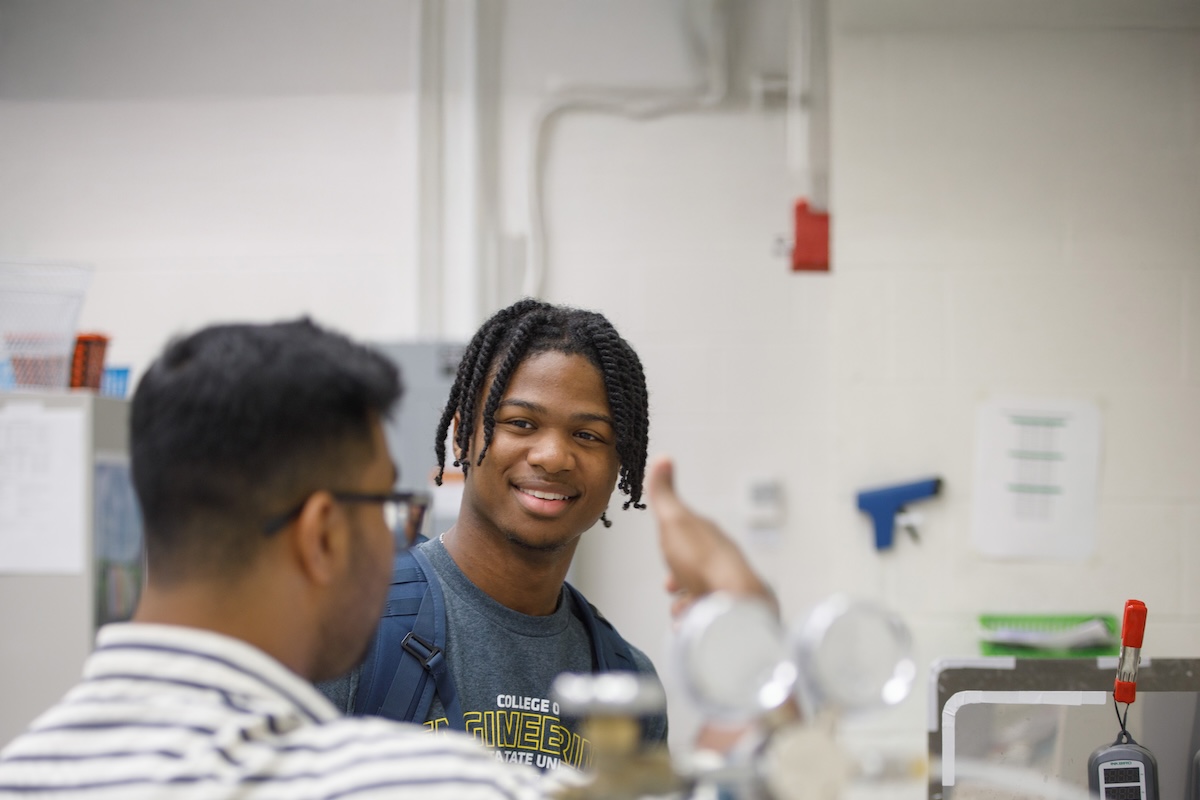Mechanical Engineering Laboratory Curriculum
The objectives of the mechanical engineering laboratory curriculum are as follows:
- To reinforce and exercise engineering and measurement principles, exposure to instrumentation and systems, and engineering practice.
- To train in test techniques.
- To develop creative thinking and diagnostic skills.
- To develop proficiency in data analysis and presentation.
- To provide a platform for practice in technical communication.
Courses With Significant Laboratory Content
Undergraduate students pursuing a mechanical engineering degree are required to complete successfully the following laboratory courses:
- ME 251 Materials Engineering Laboratory (1 credit)
- ME 533 Mechanical Engineering Laboratory (3 credit)
- ME 633 Mechanical Engineering Systems Laboratory (3 credit)
Upper-Level Laboratory Classes
In addition to the required laboratory courses, the Department of Mechanical Engineering offers upper-level laboratory classes (ME 637 Computer-Aided Engineering, ME 639 Applications of Finite Element Methods in Mechanical Engineering, ME 737 Robotics and Control, and ME 747 Microcomputer-Based Mechanical Systems). A new course (ME 450 Selected Topics in Mechanical Engineering Creative Design and Practice) was designed and offered in spring 2007 to give junior students hands-on experience with manufacturing processes. Summary information for these courses is provided below. Additionally, some traditional courses (ME 502 Thermodynamics II, ME 521 Fluid Mechanics, ME 522 Heat Transfer, and ME 662 Mechanical Engineering Practice) supplement instruction with facilities that are provided in laboratories.
- ME 450 Creative Design and Practice (3 credits)
Laboratory education in metal cutting, welding, and composite fabrication is located in the Creative Design and Practice Laboratory (Wichita Area Technical Training Center). - ME 637 Computer-Aided Engineering (3 credits)
PCs in the Design Laboratory (EB 209) are used to run finite element and CAD-graphics software. - ME 639 Applications of Finite Element Methods in Mechanical Engineering (3 credits)
PCs in the Design Laboratory (EB 209) are used to run finite element and ANSYS software. - ME 737 Robotics and Controls (3 credits)
PCs and data acquisition hardware and LabVIEW software in the Robotics and Controls Laboratory (WH 116) are used to complete projects. - ME 747 Microcomputer-Based Mechanical Systems (3 credits)
PCs and data acquisition hardware and LabVIEW software in the Robotics and Controls Laboratory (WH 116) are used to complete laboratory exercises and projects.
Each course in the curriculum has been designed to incorporate the performance of laboratory experiments that require the use of facilities provided by the Department of Mechanical Engineering.
Featured Laboratories
Learn more about the following featured laboratories.


